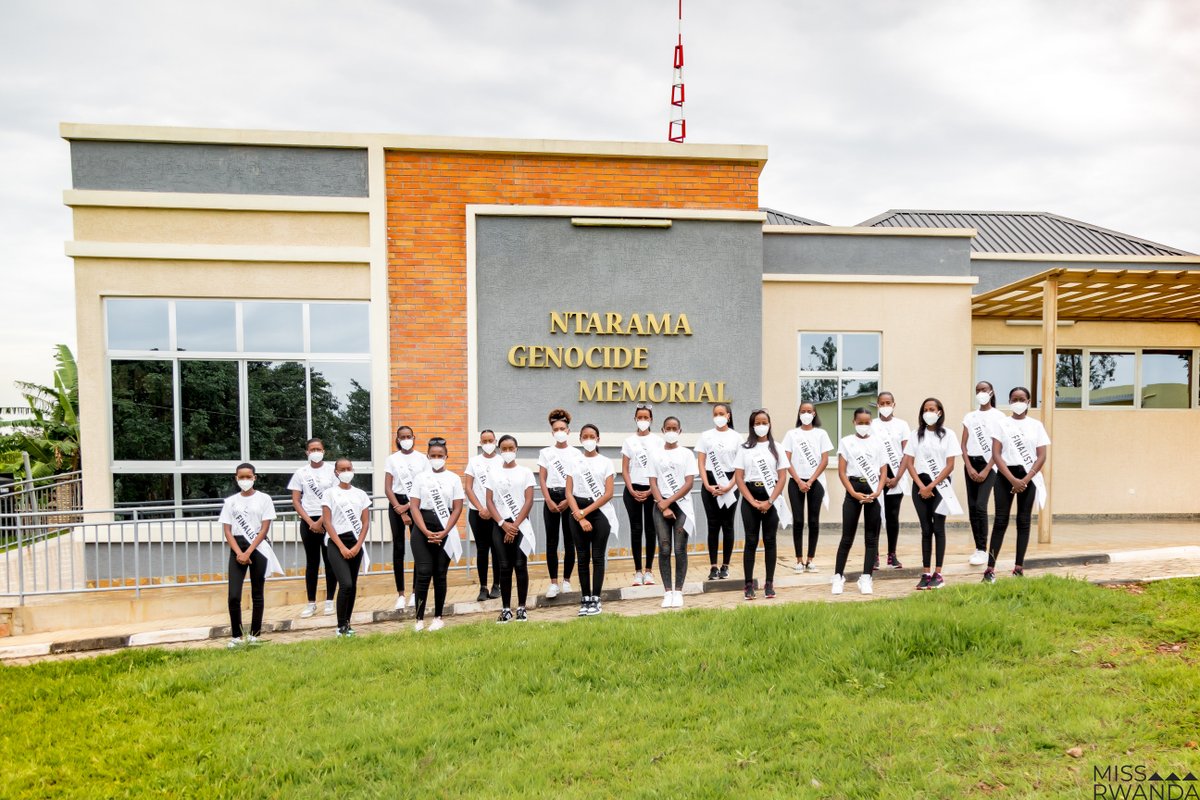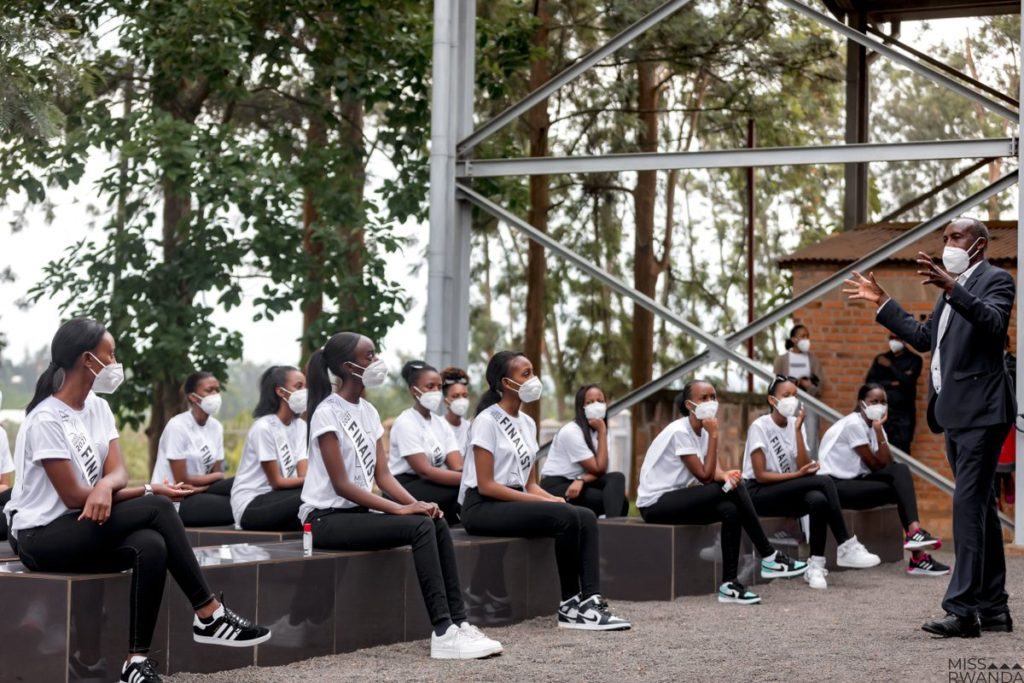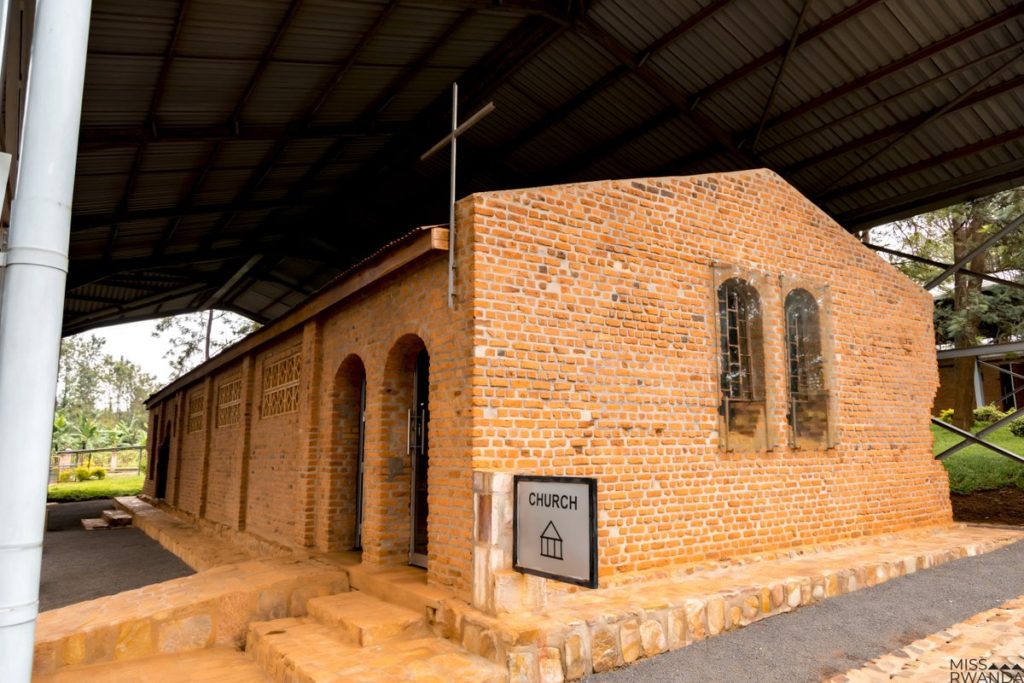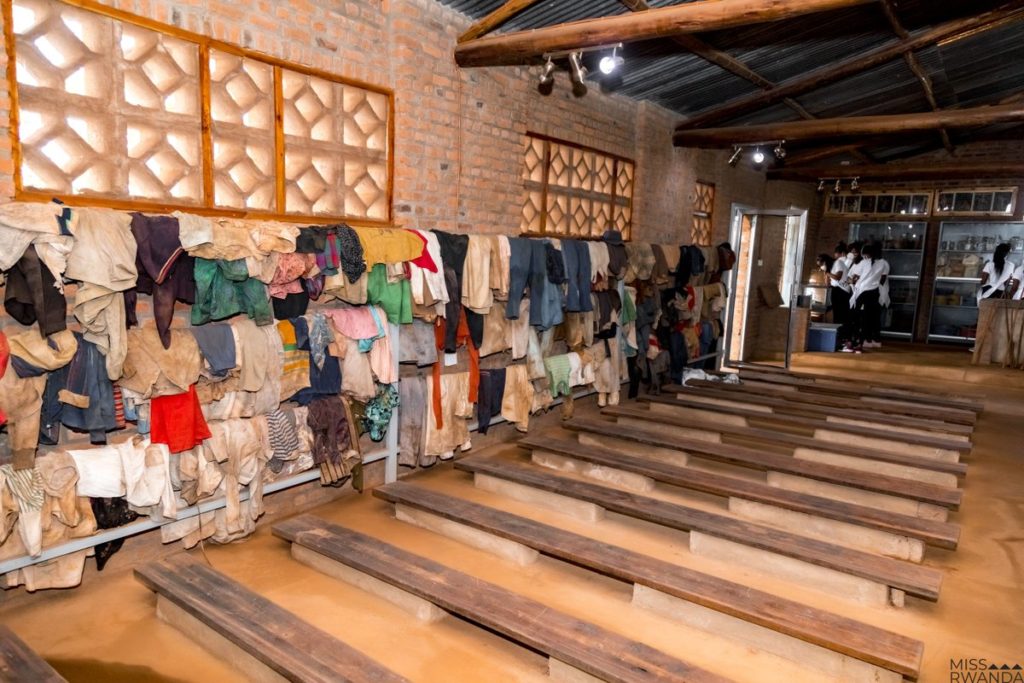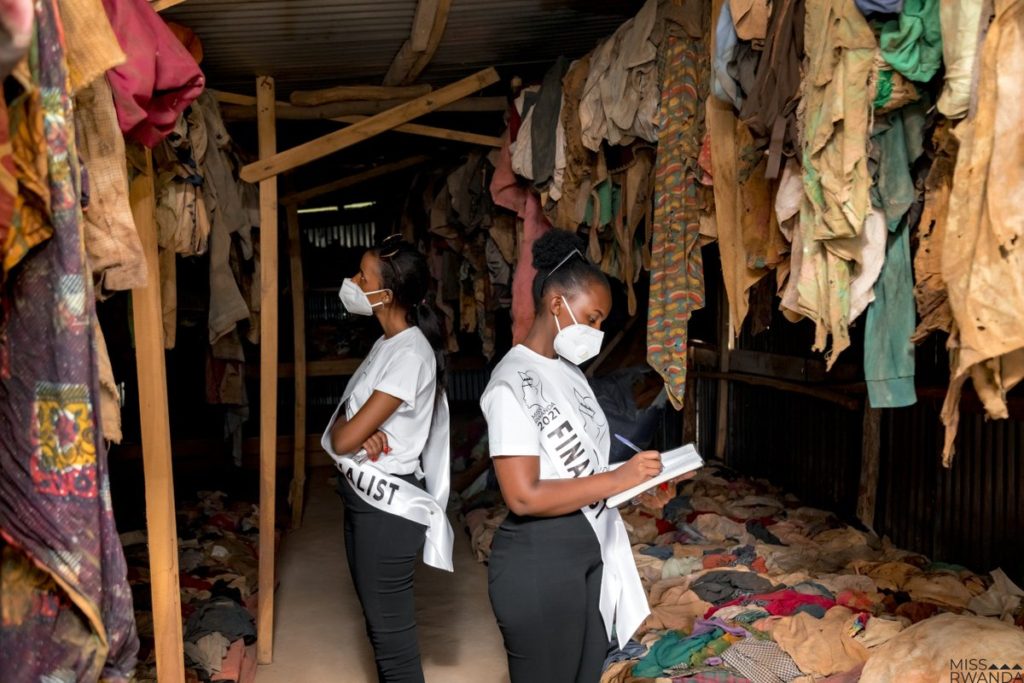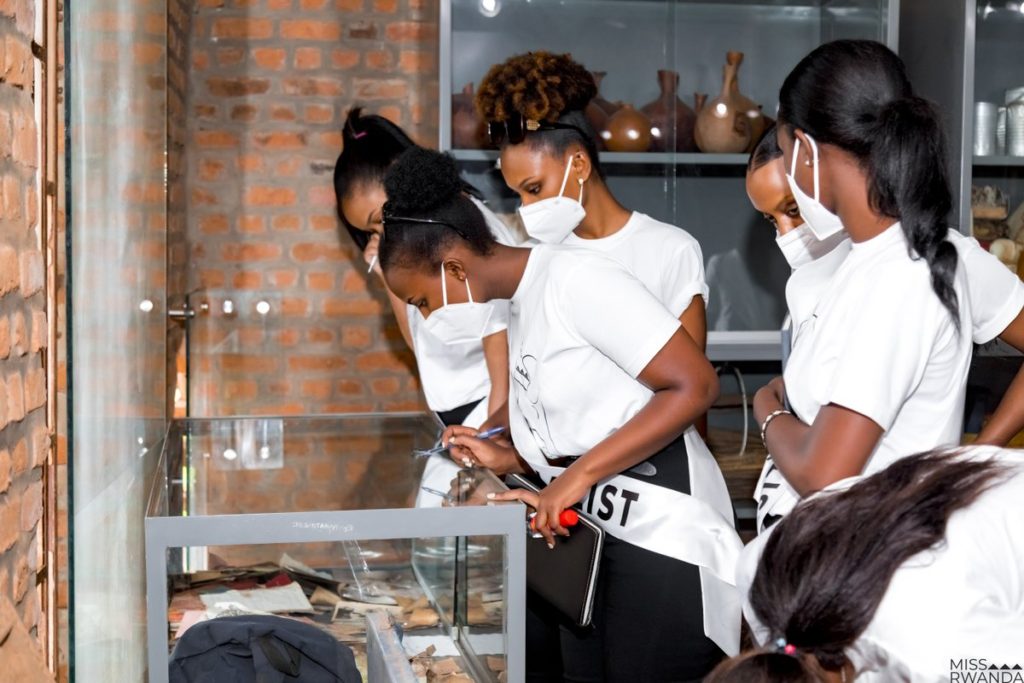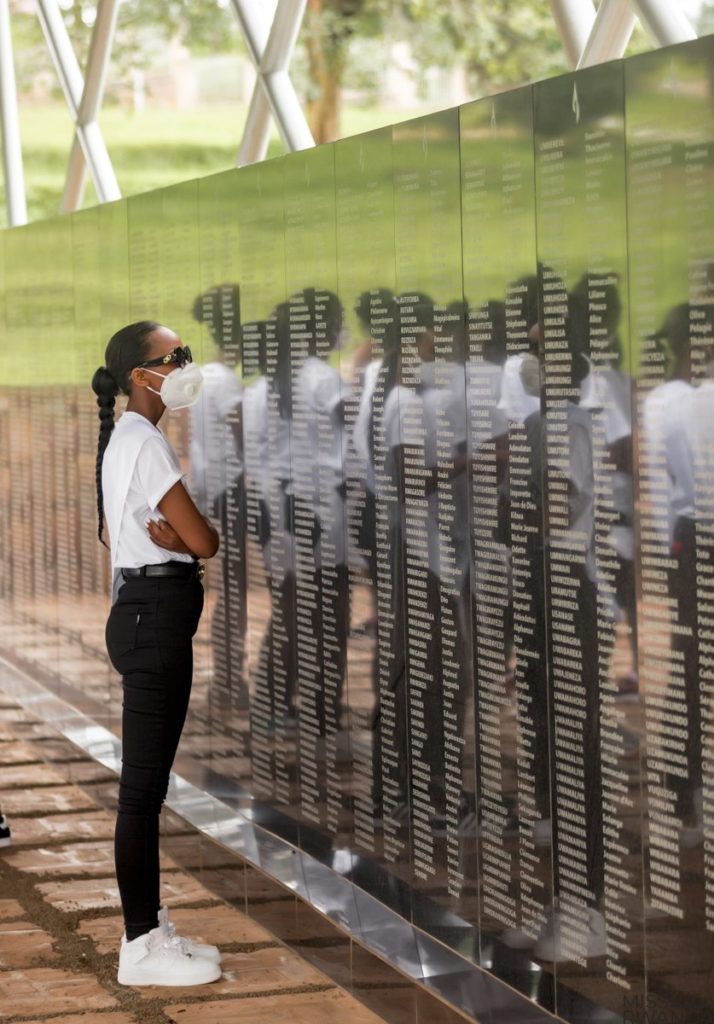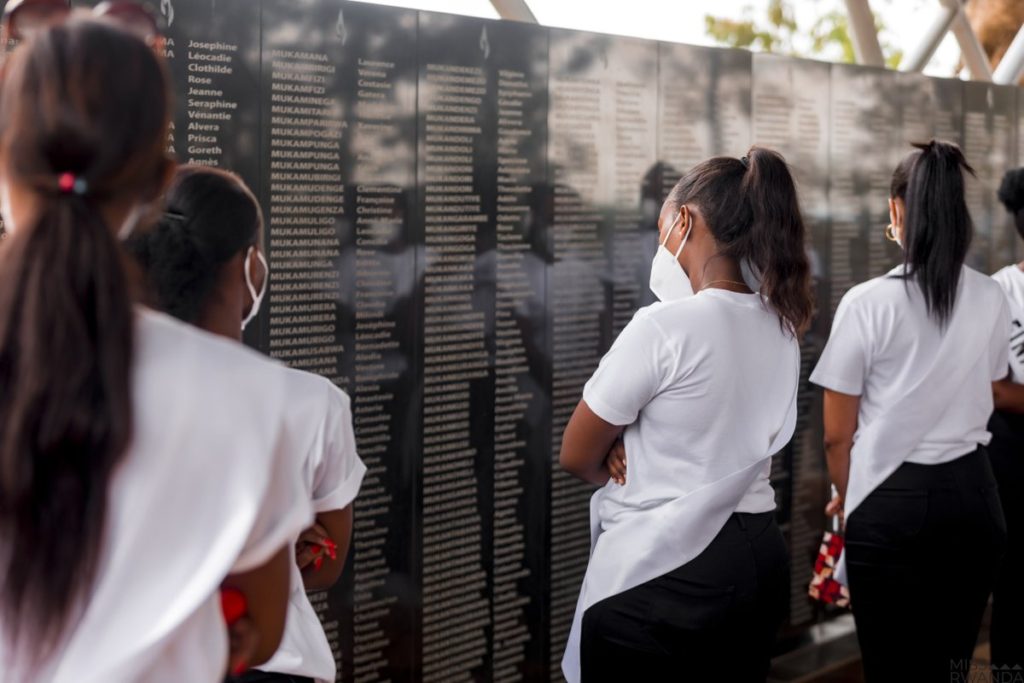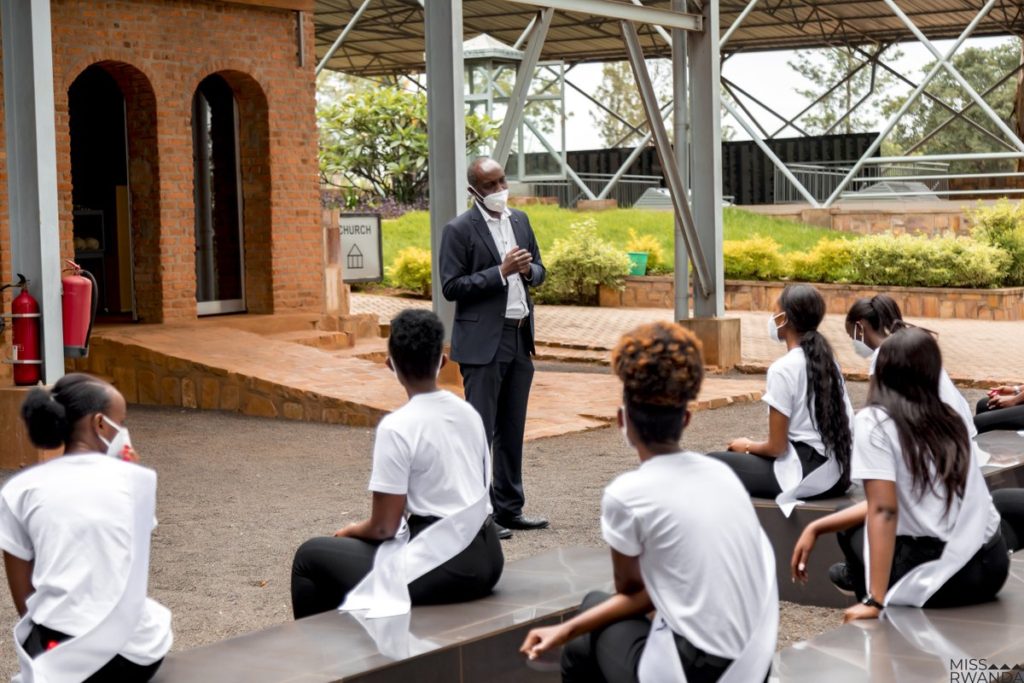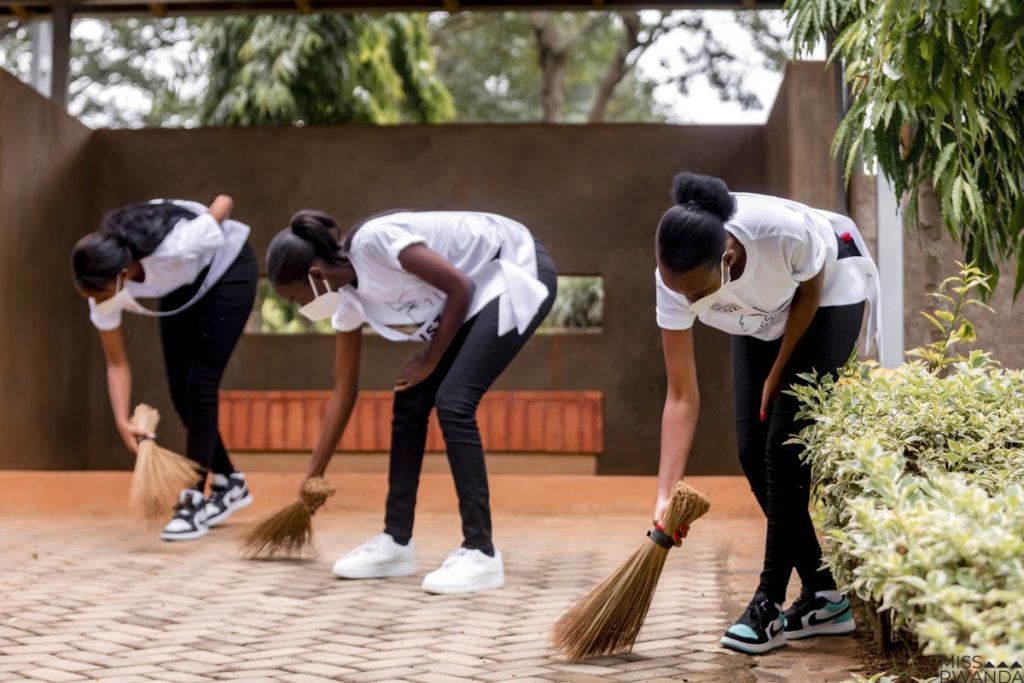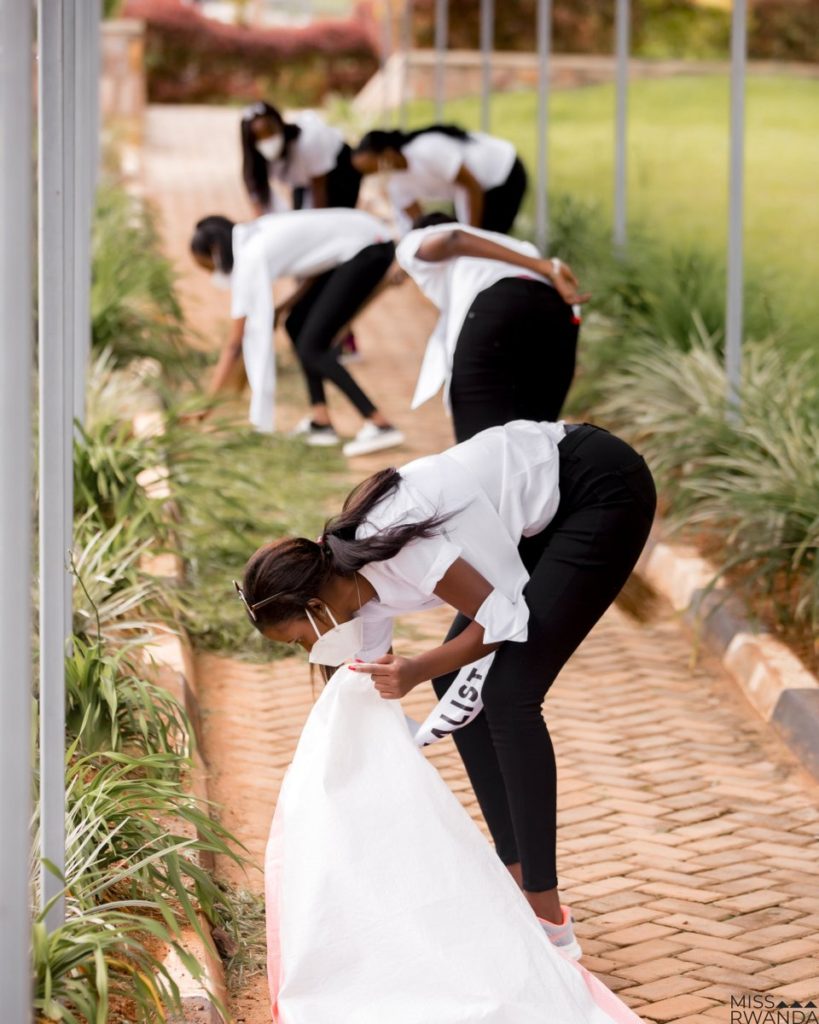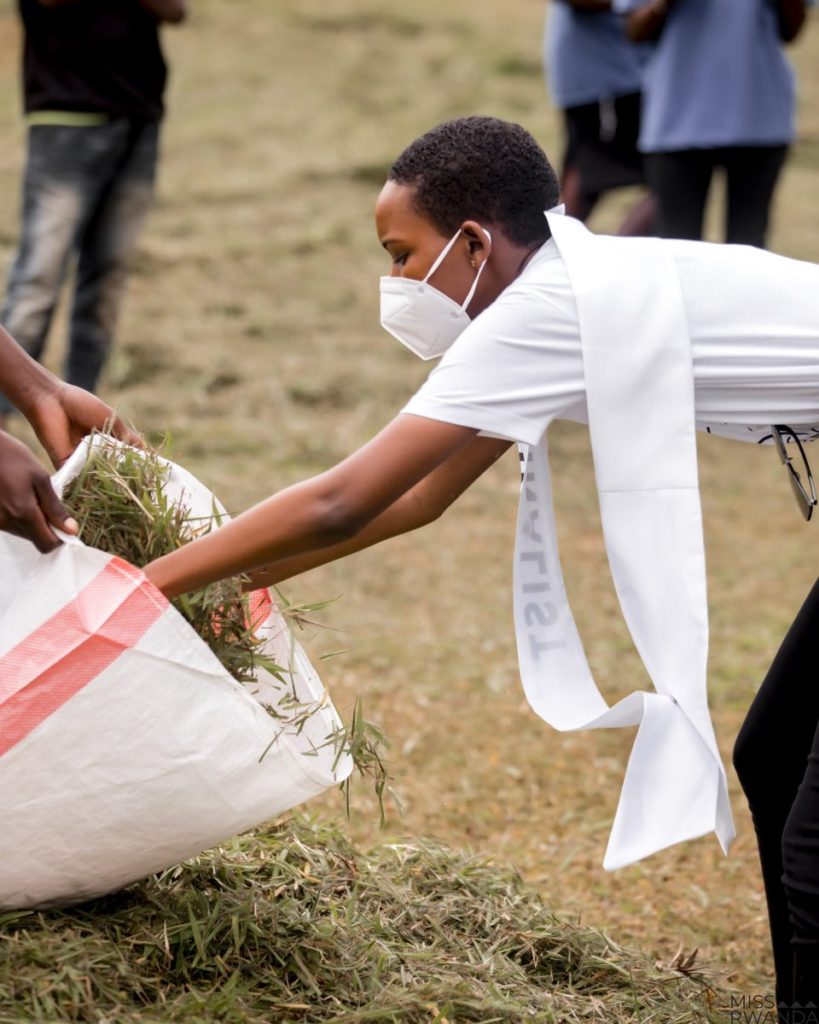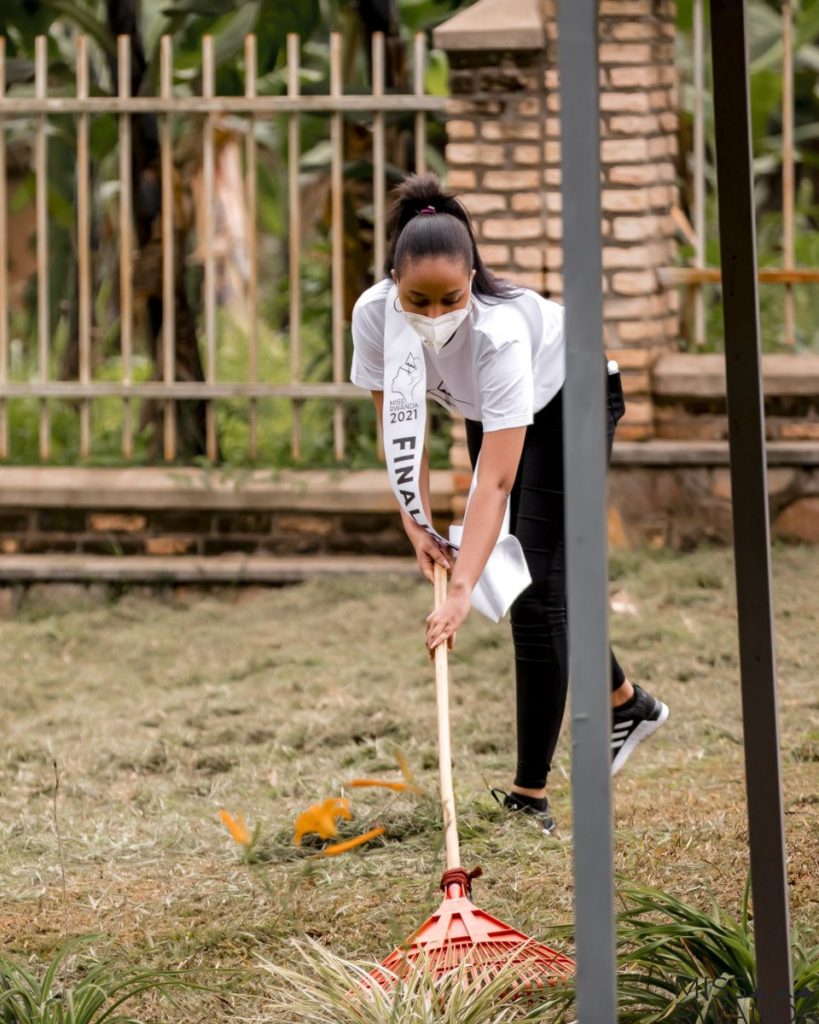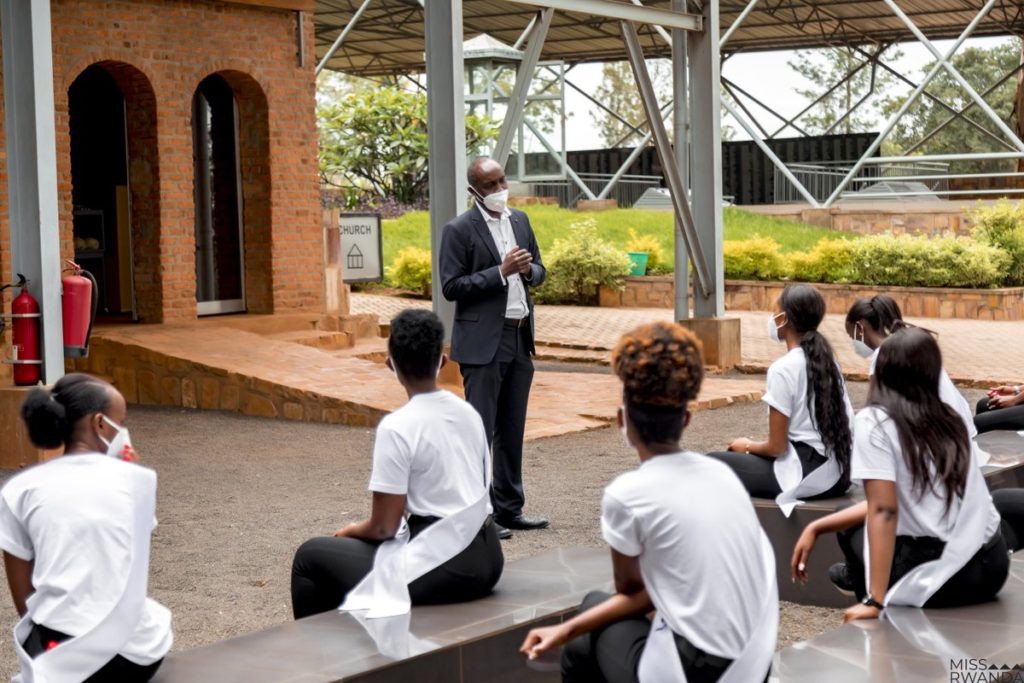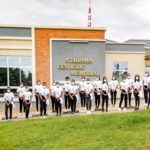Miss Rwanda 2021 contestants vow to fight genocide ideology, denial after visit to Ntarama Genocide Memorial Site
Miss Rwanda 2021 contestants on visited Ntarama Genocide Memorial Site in Bugesera district on Tuesday, March 9, 2021, where they paid their respects to victims of the 1994 Genocide against the Tutsi and found to be ambassadors in the fight against the genocide.
The top 20 finalists who are in the bootcamp at La Palisse Nyamata, made the short trip to the site where the remains of more than 5, 000 people killed in the area and the surroundings are resting.
The contestants took time to see with their eyes the horrific events memorised at the site and also did some cleaning at the site as part of their efforts to pay respects to the remains buried there.
“Our experience here is sad. It’s sad seeing what happened, the history, the horrific events and everything that happened. It’s really sad. One thing that touched me is the clothes we saw and the shoes for kids,” said Linda Uwankusi Nkusi (No.32), speaking on behalf of other contestants.
“There’s a class we saw where kids used to study for Sunday school and they were found there and killed. I think it touched me really, I was so sad seeing the wall where babies were killed,” she added.
Umutoni said that visiting the memorial, located in Ntarama Sector, Bugesera district, was important for them because they got to see the country’s history and painful past.
“This is very important because if you don’t know your history, you cannot know how to plan your future. So, we need to know where we came from to know where we’re heading,” added Witness Umutoni (No.28), adding that cleaning the memorial was a fitting way to pay tribute to the victims of the genocide.
The contestants, who were overwhelmed by the grim memories at Ntarama, vowed to make their contribution in the fight against the Genocide and the Genocide ideology.
“We would like to remind those who deny and trivialize the 1994 Genocide against the Tutsi that the genocide was real. If they have not been to a place like this, they should come and see for themselves,” said Uwankusi.
Contestant No.12, Chryssie Karera, who visited the memorial for the first time, said that the experience was real and what she saw left her shocked.
“The history of our country is a tragic one. It is hard to imagine how 5,000 people would be killed in a single day. We need to do whatever is within our means to ensure that what happened doesn’t happen again,” observed Karera.
The contestants gave financial support to elderly genocide widows, to help them buy livestock as a way of empowering them economically.
Bernadette Mukantagara, one of the beneficiaries, a genocide widow, thanked the contestants for the good gesture and for supporting them, having lost majority of their relatives in the genocide.
“The killers targeted all the youthful and strong people in our families. Only a few women and children remained, meaning that we stayed on our own and need support often to survive,”
“We want to thank the Government of Rwanda for looking after us, building for us houses and giving us cows. We also want to thank the contestants for coming through for us and being in the place of the children we lost,” Mukantagara, 63, said.
Mukantagara and her family spent most of the years fleeing from killers, from 1973, until 1994 when her family was nearly wiped out. She remained with two children and a few relatives, some of who are disabled.
“For me, someone who denies the genocide is a bad as the killers who carried it out. Young people like these girls should shun people who want to mislead them into disregarding their history,” she said, thank
Innocent Ruziganana, a staff of the National Commission for the Fight against Genocide (CNLG), in charge of Ntarama Genocide Memorial, said that the memorial holds vital history especially for young people who were not there at the time.
“The killings here happened on April 15, 1994. People had sought sanctuary in the church and the killers attacked. But not all the 5, 000 people buried here were killed in this church,”
“Also buried here are people who were killed in the surrounding areas including Kanzeze and Nyamata. As you might be aware, there were many killings in this area because initially Bugesera is where the Tutsi had been banished because it was semi-arid, so there were a lot of Tutsis here,” Ruzigana said.
Ruzigana said in Bugesera, the genocide started right away on April 7 and people ran to churches and schools and killers easily found them there, broke into the barricaded churches and killed them in their numbers.
“Those who were able to flee the churches or schools went up the hills and down in the swamps but the killers followed them there and killed them. The remains found in the surrounding areas were brought here,” Ruzigana said.
He said the visit by the contestants is important because it helped them to understand the history of their country and be able to contribute to the fight against genocide. Ruzigana said that the girls will be able to challenge people who deny or denigrate the genocide against the Tutsi.



